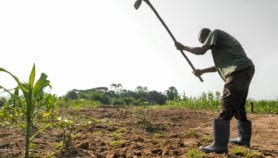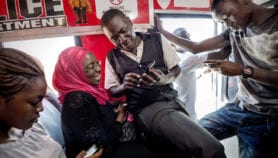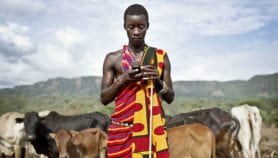By: Farai Matebvu
Send to a friend
The details you provide on this page will not be used to send unsolicited email, and will not be sold to a 3rd party. See privacy policy.
[MUTARE, ZIMBABWE] Policy and regulatory reforms are required to bring down the high costs that prevent many people in developing countries from accessing the Internet, a forum has heard.
A new coalition, the Alliance for Affordable Internet (A4AI), was launched this month (7 October) at the Commonwealth Telecommunications Organisation's annual forum in Abuja, Nigeria, to steer the needed reforms.
It has backing from both public and private organisations, including Google, Facebook, Microsoft, the UK Department for International Development, and the US Agency for International Development.
According to AF4I, around two-thirds of the world's population lack access to the Internet, a digital divide that impedes socio-economic progress.
The initiative is aimed at reducing high Internet prices by advocating for open, competitive and innovative broadband market systems with limited or no government ownership in developing countries, including those in Africa.
"In Kenya, we saw the number of Internet users more than double in a single year after we liberalised markets," says Bitange Ndemo, honorary chairperson of A4AI and former permanent secretary of Kenya's Ministry of Information and Communications, in a statement.
“Now we need to spark the same revolution on broadband costs and access, not only in my country but around the world.”
Bitange Ndemo
Reforms include streamlining licensing process to end government bureaucracy and corruption, laws and policies on cyber crimes and transparent disclosure of pricing and service options to end users.
Sonia Jorge, A4AI executive director, tells SciDev.Net: "The initiative will enable billions of people in low-income countries to come online and make universal access a reality".
A4AI intends to work with partners in developing countries to carry out research and develop policy proposals to be presented to governments.
"We will be working in three pioneer countries to be announced by the end of 2013 and will bring together country stakeholders to identify obstacles and help to drive implementation," Jorge explains.
The A4AI is made up of more than 30 private and public sector players and not-for-profit organisations that have come together to boost affordable access to both mobile and fixed-line Internet in developing countries.
"International organisations with a strong presence in Africa, such as Consumers International, the Association for Progressive Communications, Inveneo and the Commonwealth Telecommunications Organisation are members of the alliance," Jorge adds.
The primary focus of the alliance is to reach the UN Broadband Commission target of entry-level broadband services priced at less than five per cent of average monthly income in developing countries.
Hasha Maringe, president of the Information and Communication Technology Association of Zimbabwe, says the alliance's quest to stimulate global policy reform to help lower Internet costs is a good initiative.
"It is a victory for Africa and the developing world considering that we are all living in the information society," says Maringe.
He adds, "Internet forms the backbone of economic, social [and] political development and it enhances research, hence the need for everyone to [have] access".
Earlier this year, another initiative to roll out affordable Internet in the developing world was launched: Internet.org. It is a partnership of multinational media and technology companies aiming to connect the rest of the world to the Internet by developing new technology, improving data transmission efficiency and boosting incentives for businesses to expand affordable access.
This article has been produced by SciDev.Net's Sub-Saharan Africa desk.














